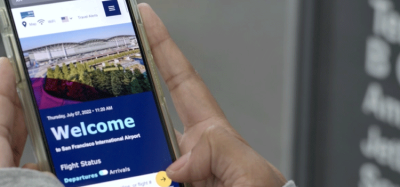Deriving the best from digital transformation
- Like
- Digg
- Del
- Tumblr
- VKontakte
- Buffer
- Love This
- Odnoklassniki
- Meneame
- Blogger
- Amazon
- Yahoo Mail
- Gmail
- AOL
- Newsvine
- HackerNews
- Evernote
- MySpace
- Mail.ru
- Viadeo
- Line
- Comments
- Yummly
- SMS
- Viber
- Telegram
- Subscribe
- Skype
- Facebook Messenger
- Kakao
- LiveJournal
- Yammer
- Edgar
- Fintel
- Mix
- Instapaper
- Copy Link
Posted: 7 March 2022 | Tayanç Eryavuz | No comments yet
Tayanç Eryavuz, Director of Procurement of iGA Istanbul Airport, reflects on the effects of the COVID-19 pandemic upon Istanbul Airport, and the aviation industry in general, and explains how the use of digitalisation has been key in enabling the airport to continue operations and how technological innovation will drive its future.


iGA’s journey began on 7 October 2013, when our partnership structure was set up for the purpose of constructing and operating Istanbul Airport. The airport was constructed and ready to commence operations in a record time of just 42 months. The first of the four phases scheduled for Istanbul Airport to reach completion was commissioned as of 29 October 2018, followed by the ‘Great Move’ on 6 April 2019, marking the airport’s transition to operation at full capacity, which we completed successfully in 33 hours, taking less time than planned.
Covering an area of 76.5 million square metres, the new airport serves as a global hub between Asia, Africa, and Europe. Boasting 130 destinations in 60 countries within a three-hour travel distance thanks to Turkey’s strategic location between the east and the west, Istanbul Airport, ‘Turkey’s gateway to the world’, stands out as the largest hub in the region.
As a global hub, Istanbul Airport is also an important home of cargo, contributing to worldwide growth. The cargo and logistics city includes online warehouses for air cargo operators and offline warehouses for freight-forwarders, express cargo terminals, cargo custom offices, cargo agent offices, a truck parking area, as well as an employee and visitor parking area. The total cargo area of Istanbul Airport is 1.4 million m2. When all phases are completed, it will have a cargo capacity of 5.5 million tonnes.
The impact of the COVID-19 pandemic
Aviation is a key economic sector, a sector which was hit first, and hardest, by the COVID-19 pandemic. As we all know, it has had an unprecedented and devastating impact which necessitates urgent, global, harmonised action to stabilise the industry as quickly as possible. As a global hub airport, we need to all work harder together to put it back on a path towards a sustainable recovery and future – operationally, financially, socially, and environmentally.
Without doubt, 2020 was a very difficult year for everyone, but especially for the aviation industry. We faced the worst global health crisis ever, the effects of which we were not able to foresee, and experienced a year where we, as an industry, could not meet our goals. The COVID-19 pandemic has had a profound effect, and it has changed passenger needs and expectations globally. Many airports around the world have adapted to the new COVID-19 reality and have implemented preventive measures.
At the beginning of the COVID-19 pandemic, like many other airports across the world, Istanbul Airport suspended all scheduled passenger flights until June 2020. It was a heart-breaking period from our perspective, going from 200,000 passengers a day to none for almost two months; it was a challenging experience for us all. We only had a few repatriation flights and our cargo operations continued at the same levels as before.
Given the global dimension of the COVID-19 pandemic, delays in the supply of certain product groups have been an inevitable consequence that we had to deal with at times, along with an increase in prices due to problems in raw material supply. In response, we reached out to alternative products thanks to our wide supply network, the strong communication skills of our staff, and the precautions we took to forestall potential problems. In fact, when we look back at the past two years, there has been no change in our purchasing volume. Key to this was having previously digitalised our purchasing processes, even before the COVID-19 pandemic broke – a point I cannot stress enough. Consequently, the remote working conditions that many people had trouble adapting to during lockdown, did not affect our staff.
Digitalisation is an opportunity
Digitalisation has been an issue on the agenda of all fields in recent years. It is of critical importance, but takes time to realise. Our entire process is carried out electronically. We have been working on developing continuous improvement projects in ERP to speed up, and improve, the efficiency of our work. Technology gives us endless opportunities to improve our business, and I must say that we have made good progress so far. With a management structure that makes use of our investments in technology in all processes at Istanbul Airport, we aim to derive the best benefit from digital transformation in our purchasing processes as well. I am confident that we will take many more steps in the future to render best service based on iGA’s innovative mindset.
Considering the impact of the COVID-19 pandemic on our industry, we had been expecting it to shrink by 28 per cent, not grow. A closer look at the figures of the first half of 2021 show that this decline is unlikely to go beyond our anticipations. As such, we are happy to weather out the COVID-19 pandemic like this.
As discussed earlier, key to achieving efficiency in our business is the digitalisation of purchasing processes. Our focus in the upcoming period will be on digital transformation to make our purchasing processes more efficient. Our entire team is committed to closely following innovation and keeping pace with the state-of-the-art, for which they attend training both within, and outside, our company to learn and develop best practices in our industry. ‘Digitalisation’ was an indispensable must for some last year and a current topic for a great deal of companies. It will continue to hold a significant place on our agenda this year, and investments will be planned accordingly. In addition, the issue of ‘expanding the supplier network’ will gain prominence, this year and beyond. Another key issue is the recent emphasis being placed on the use of local products.


Issue
Related topics
Air freight and cargo, Contactless / Touchless technology, COVID-19, Digital transformation, Passenger experience and seamless travel, Passenger volumes


















